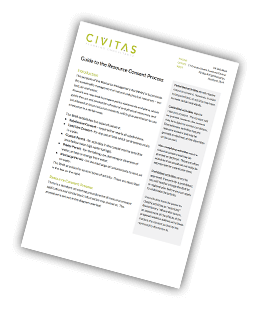Winners and Losers under the RMA Amendment Bill
By Iain McManus
The Resource Management (Enabling Housing Supply and Other Matters) Amendment Bill will significantly change the zoning frameworks in New Zealand’s main urban areas. See my earlier blogs here and here for an overview of those changes.
In this blog, I look at who wins and who loses as a result of the proposed changes, with a particular focus on the Auckland area.
Who are the winners under this Bill?
- Property owners in the Single House and Mixed Housing Suburban zones as they will experience the greatest uplift in development potential and property value.
- Owners of properties with a high land value ratio (e.g. people with low value homes in moderate to high value areas) as their sites will be more viable for redevelopment.
- Real estate agents – if more people see an opportunity for a windfall profit by selling to a developer and moving somewhere else, there will likely be an uplift in listings.
- Small-scale developers who specialise in doing two or three unit developments, as they will see a significant increase in the supply of sites that can be redeveloped in this way.
- Builders and other tradies – intensification will become viable across a wider range of properties, so tradies are likely to experience a further increase in demand for their services.
- Tenants and first home buyers, eventually, as the increase in the supply of properties viable for redevelopment and removal or reduction of costs associated with the resource consent process will eventually suppress increases in the cost of renting and buying.
Who are the losers under this Bill?
- Existing property owners generally, as their properties will not increase in value in the future as much as they otherwise would without the Bill – the Government’s economic analysis estimates that the average homeowner present in the five main centres at the time of policy enactment will lose $161,000 of capital growth over 20 years as a consequence of the Bill.
- People who want to live in a low density area close to the central city as there will be more competition for those sites from developers and more risk of adjoining sites being intensified and changing the character of the neighbourhood.
- Property owners who like the area they live in and don’t want to see change but have neighbours with a high land value ratio – these neighbouring sites will be more viable for redevelopment as a consequence of these changes.
- People who appreciate the consistent character in some of our special character areas, as many of these are unlikely to survive the combined assault of the National Policy Statement - Urban Development ("NPS-UD") and Bill.
Will the owners of properties in the THAB zone be winners or losers?
The impact on the owners of land in the Terrace Housing and Apartment Buildings (“THAB”) zone will vary.
Some owners of under-developed land in the THAB zone may experience a reduction in the value of their land, as the Bill will (eventually) increase the supply of land capable of intensification (albeit, not to the same level of intensity as permitted in the THAB zone).
However, for many owners, this will be offset or more than offset by the NPS-UD requirement for councils to enable at least six storeys in certain locations, as this will further increase the development potential of many THAB zoned sites.
Overall, the impact of the Bill on the value of THAB zoned sites will vary, with sites (particularly small sites) in locations that are not close to centres, rapid transport stops or significant open space and not viable for apartments likely to experience a reduction in value while sites in locations that are close to centres, rapid transport stops or significant open space and viable for apartment development are likely to hold and potentially even increase in value as a consequence of the changes required under the NPS-UD.
Feel free to get in touch if you would like any advice re the implications of the Bill on your land holdings.

